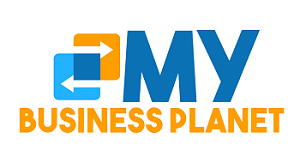Employer wellness programs have long promised better health outcomes and lower costs, but many have struggled to deliver. Generic advice, limited engagement, and one-size-fits-all incentives rarely create lasting change. Joe Kiani, founder of Masimo and Willow Laboratories, sees the future of employee health in personalization supported by real-time data. His work with Nutu™ reflects a shift toward tools that help people make small, meaningful changes that last, both at work and beyond.
Instead of relying on occasional screenings or broad step challenges, modern platforms focus on context and consistency. When guidance is timely, relevant, and built into the rhythm of the workday, it is more likely to support healthier routines and give organizations a clearer path to controlling costs.
The Trouble with Traditional Wellness Programs
Many employer wellness programs begin with strong intentions, from boosting morale to lowering health costs, yet they often fall short in practice. Participation tends to be low, follow-through is inconsistent, and the advice offered feels too generic to create lasting change. Incentives may spark short bursts of activity, but they rarely lead to sustainable results.
The problem is often a mismatch between program design and real human behavior. Employees do not need another checklist. They need guidance that fits naturally into the flow of their day. Digital platforms that combine behavioral science with artificial intelligence are helping bridge that gap. Instead of simply counting steps or sending reminders, they interpret biometric and behavioral data to offer timely, relevant support. This tailored approach encourages steady engagement and makes wellness feel like part of daily life rather than an extra task.
Personalized Health Guidance for the Workday
Modern wellness platforms like Nutu begin the moment a user logs in. By syncing with wearable devices or phone sensors, they create a picture of someone’s physical activity, sleep quality, eating patterns and more. That data helps the platform make decisions about what to suggest and when to suggest it.
An employee who’s been sedentary for most of the morning might receive a prompt to stretch or walk before lunch. Someone whose heart rate variability shows signs of stress may get a calming breathwork exercise. These recommendations are designed to be brief, relevant and easy to act on within a busy schedule. The goal isn’t perfection. It’s progress. By offering small, achievable nudges, the platform builds momentum that leads to sustainable health habits over time.
From Perks to Personalized Support
For wellness programs to succeed, they must move beyond surface-level perks. Free fruit in the breakroom or discounted gym memberships can be pleasant, but they rarely influence lasting habits. Personalized platforms bring a deeper level of impact by guiding users through health goals in ways that feel practical and sustainable.
Nutu applies behaviorally informed design to encourage progress in areas such as sleep, nutrition, stress management, and activity. Its adaptive AI adjusts to each user’s pace and feedback, so the experience feels supportive rather than prescriptive. Joe Kiani, Masimo founder, explains, “What’s unique about Nutu is that it’s meant to create small changes that will lead to sustainable, lifelong positive results.” For employees, this translates into better routines and fewer sick days. For HR leaders, it shifts wellness from a compliance exercise to part of a culture of care.
Measuring What Matters
Traditional programs often measure success by surface-level participation, such as how many people sign up or how often they log in. More advanced platforms look deeper, tracking consistency, progress, and outcomes that reflect the individual’s journey. These measures give a clearer picture of whether healthy habits are taking hold.
Real-time analytics also allow employers to see which strategies are most effective. They can identify patterns of engagement, adjust resources for different teams, and shape wellness efforts without compromising privacy. This makes wellness a strategic investment rather than just a benefit on paper. When programs measure what truly matters, organizations gain healthier employees and a stronger return on their investment.
Supporting Hybrid and Remote Employees
As the workplace continues to shift beyond traditional office spaces, wellness strategies must evolve. AI-driven tools are particularly effective for hybrid and remote teams because they deliver personalized support without relying on in-person clinics or scheduled events.
The experience stays consistent whether someone is working from home, in the office, or on the road. Daily prompts, tailored health tips, and feedback follow the individual rather than the location. That continuity is especially valuable in distributed environments where access to care may be uneven. By offering the same level of support across the workforce, these platforms help create a more equitable foundation for health.
Better Conversations with Healthcare Providers
AI-powered wellness platforms also strengthen the connection between employees and their healthcare providers. By capturing daily habits, symptoms, and biometric data, these tools create a more complete picture of what happens between visits.
That information makes appointments more effective. Employees can share clear trends such as changes in sleep, stress, or activity patterns without relying on memory. Providers can then adjust recommendations with greater precision, linking advice to the context of everyday life. For employers, this translates into better outcomes, fewer missed opportunities, and stronger value from health benefits.
Building a Culture of Everyday Wellness
The most effective wellness programs extend beyond individual habits to reflect an organization’s values. When employees feel supported in building healthier routines, and those routines are reinforced through personalized tools, the result is a more engaged and resilient workforce.
AI is not a replacement for empathy. It complements it by offering tailored support that keeps people connected when it matters most. Whether it is a reminder to pause, a suggestion for smarter meals, or encouragement after a stressful week, these small moments of care accumulate into meaningful change.
Sustaining Workplace Health
Wellness programs are moving away from checklists and incentives toward systems that understand people and grow with them. Digital platforms shaped by behavioral science and artificial intelligence bridge the gap between intention and action, helping employees turn goals into lasting routines.
As more employers adopt these tools, the benefits become clearer: healthier teams, reduced costs, and stronger organizational culture. With leaders guiding this evolution, the focus remains on building solutions that work with daily life rather than against it. When wellness feels personal, consistent, and accessible, it stops being a program and becomes part of the workplace itself.











